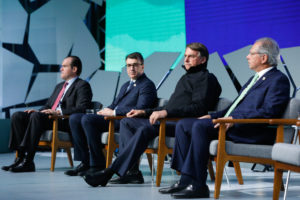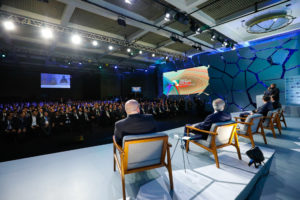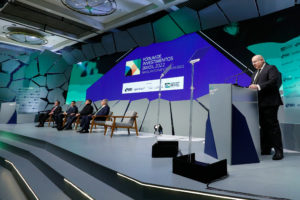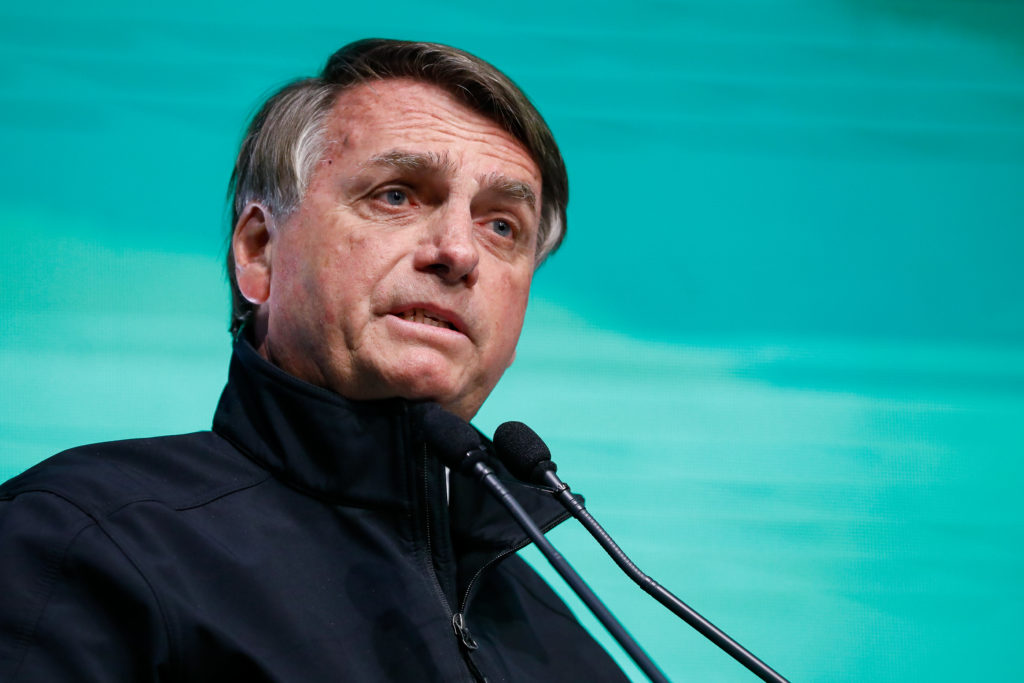São Paulo – With Europe down, Brazil is the most promising destination for global investments. This was the perspective presented by the Brazilian federal government at the opening of the Brazil Investment Forum 2022, which takes place this Tuesday (14) and Wednesday (15) in a hybrid format, organized by the Brazilian Trade and Investment Promotion Agency (ApexBrasil), Inter-American Development Bank (IDB), and Brazilian federal government.

The Brazilian president, Jair Bolsonaro, and minister of Economy, Paulo Guedes, supported the statement. “Why do we have 15 ambassadors here? Because what’s left is Brazil,” said Bolsonaro about the country being a current alternative for foreign investors. “Europe, respectfully, due to gas and energy issues and the closeness to the conflict, becomes an unreliable place to invest. What’s left? Brazil.”
Guedes said the world is a turbulent sea that could not get better anytime soon but instead worsen. According to him, three factors led to this, which he described as colossal shocks. In addition to the COVID-19 pandemic and the war involving Russia, he cited rising wages in Asia, which until then was an alternative to cheap production. “Wages are going up all over the world, and there’s this inflation,” he said. Guedes stated he has no doubt there will be a recession in Europe and the United States.

For Guedes, there are opportunities for Brazil in this setting, and the requirements for attracting investments are closeness for logistics and being a friendly country. “We are under turbulent winds, the sea outside is rough, and it will get worse; now, there is the good side that is Brazil; Brazil is the biggest boundary for investments,” he said. Speaking of the economies of Europe and the United States, Guedes said there is no “soft landing for them” currently. “Meanwhile, you have Brazil, on the other hand, starting to take off again,” he said.
Speaking after the minister of Economy, Bolsonaro linked the problem of world inflation to the lockdown. “The one who ordered the people to stay at home was not me. I had the power to shut down the whole of Brazil, (but) an unfortunate decision by the Federal Supreme Court took away from me the possibility of handling the pandemic issues,” he said. “Perhaps I was the only head of state in the world who was against the lockdown,” he said. “This affected the Brazilian economy. The war 10,000 kilometers away also affects,” said Bolsonaro.

Bolsonaro spoke at the forum on other international issues, such as the supply of fertilizers. He said he was “beaten a lot” by the media when he went to talk to Russian president Vladimir Putin. “I want peace, we have 600,000 Ukrainians in Paraná, but I am the president of Brazil,” he said. Bolsonaro also addressed environmental issues. “When I take a picture in the Pantanal or the Amazon region, the world is against me, but for what? Why does that happen? The economic interest of a large European country in particular, whose president has now been re-elected, which has commodities and wants to avoid competition, and always leave us in a corner,” he said.
Brazil

In addition to Bolsonaro and Guedes, the Brazilian minister of Foreign Affairs, Carlos França; the president of ApexBrasil, Augusto Pestana; and the president of the IDB, Mauricio Claver-Carone; also spoke at the opening of the forum. França said the global economy is experiencing a moment of significant challenges, and protectionist pressures are intensifying; he also described the current line of Brazilian diplomatic work. Pestana spoke about ApexBrasil’s work for internationalizing companies and attracting investment.
Claver-Carone described the Brazilian investment scenario in an exceptionally positive light. The IDB president said Brazil concentrates several solutions in a single region of the globe. Throughout his speech, he mentioned several areas he sees as promising in the country, such as sustainability, agricultural technology, digitalization, information technology, professional and business services, energy, agriculture, and natural resources. “Latin America and the Caribbean, particularly Brazil, are well-positioned to help alleviate bottlenecks on the international stage,” he said.
Translated by Elúsio Brasileiro




